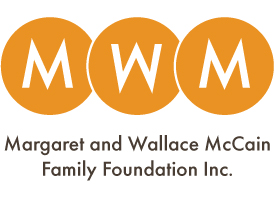
Conference Board of Canada, November 28-29, 2018, Marriott Downtown at CF Toronto Eaton Centre, Toronto, Ontario
Education and skills are required to grow our economy and standard of living, and to improve the social and cultural life of our country. However, our education and skills development systems face numerous challenges and disruptors.
Barriers to access are limiting participation in education at all levels, especially for marginalized people and Canada’s increasingly diverse population. Mobility options are limited, especially for rural and remote students. We also face challenges when it comes to inter-provincial and international mobility. New graduates also experience challenging school-to-work transitions, and would benefit from access to more work-integrated learning (WIL) opportunities.
This year’s Symposium focused on exploring the policies, practices, and programs needed to build accessible and fluid education and skills pathways in Canada. The symposium program includee two streams—early childhood education and K-12, and PSE and adult/workplace learning—and covered the following themes:
- Improving access to participation―What is needed to improve access to education at all levels, particularly for marginalized people and Canada’s increasingly diverse population, including immigrants, Indigenous peoples, and persons with disabilities?
- Decolonizing education―What is needed to decolonize our education systems and to address the education-related Calls to Action of the Truth and Reconciliation Commission of Canada?
- Supporting learner-driven pathways―How do we enable the fluid and efficient movement of learners between K–12 and PSE and within PSE?
- Enabling school-to-work transitions―How do we ensure sufficient, high quality WIL opportunities are available to improve skills training and labour market entry?
Access the luncheon presentation, Early Childhood Education: Essential to the Education Continuum featuring Jane Bertrand, Program Director, Margaret and Wallace McCain Family Foundation, and Kerry McCuaig, Fellow in Early Childhood Policy at Atkinson Centre.
"The evidence is clear and abundant-participation in two or three years of early childhood education prior to formal schooling benefits all children. Universal early childhood education removes barriers to opportunity and maximizes the benefits of a public education system.
Ensuring a seamless transition from early childhood education into Kindergarten is also beneficial, especially for vulnerable populations. Recent research on the social and economic benefits of early childhood education as well as the growing role of public education in the delivery of early childhood education will be shared in this presentation."

